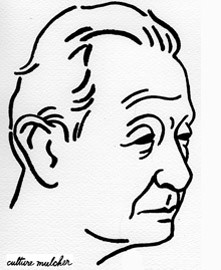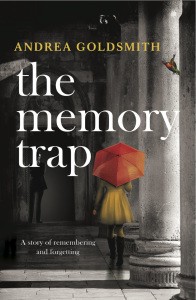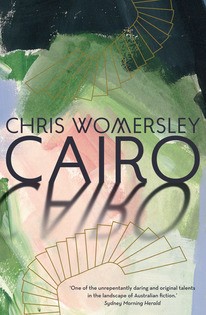By JIM MORGAN
Two recent novels have taken me back into my early days in Melbourne as a writer, fresh from being managing director of a pastoral firm that was running three thousand square miles in the north-east of South Australia.
The first reminds me of the 1990s when every two years or so McPhee Gribble Penguin kindly published a new novel of mine. During that decade Melbourne Writers’ Week took place at the Malthouse, a convivial place to meet and chew the fat.There must be something about ex-graziers or pastoralists, males in their sixties that discourages those who organise such bunfights, sheepmen being seen but ignored by those in power. Meanwhile the biennial appearance of novels by Andrea Goldsmith were rightly celebrated as I haunted the little tables with my drinking companion, the late Graham Little, watching awestruck as a garland of beautiful young women danced attendance on Goldsmith and her latest literary triumph.
The Memory Trap, the most recent publication, is her seventh. Characteristically, a highly intelligent account of the interwoven connection between two brothers and two sisters, next-door neighbours growing up in suburban Melbourne, the central figure being Ramsay, a gifted pianist and Nina, a memorist of international reputation. This is a beautifully balanced and intelligent novel. We are lucky to have Goldsmith and unlucky to have lost her partner, the great poet, Dorothy Porter.
+ + +
I soon abandoned (much-acclaimed novel) Bereft as yet another Melbourne novel trying to draw gravitas from a background of world tragedy, such as Demidenko/Darville’s The Hand that Signed the Paper, University of Queensland Press, 1994 and more recently, Anna Funder’s All That I Am, a title claiming some obscure gravitas that succeeded in being pretty dull.
I remember serious young men with literary pretentions who read my first novel Parakeet in the early 1990s murmuring something about ‘loss’ for which I was grateful and appreciated that they had picked up on my regret about abandoning farming, whereas more likely it was just a faddy thing to say.
Cairo, Womersley’s second novel, like The Memory Trap, is set in a Melbourne scene attached to the arts. The action takes place largely in the 1980s in a real block of small flats and studios named Cairo built by a young architect, Best Overend, in 1936. The main building was originally accompanied by a shop, eight car garages, a communal dining room and two laundries. The action takes place in the 1980s in and around this bohemian milieu with a cast of reasonably charming, somewhat talented characters that adopts our hero Tom Button.
Button has come to Melbourne from the country where “a man’s worth is measured by his ability to stake a fence.” Apart from that phrase, Womersley’s use of a real building and an amusing cast set in the 1980s never strikes a false note. It gets the feeling of a world that was also my introduction to city life and Melbourne’s art world — but most of the action is based around the theft of Picasso’s Weeping Woman from the NGV.
(This was when the brilliant Patrick McCaughey was still in our midst before he removed himself to the USA — abandoning ‘the most liveable city in the world’, only coming back for family reasons and most recently for his seventieth birthday.)
I think this a funny, brilliant novel, romping through the story of a still unsolved theft seen through the eyes of a country boy at the threshold of life who finds himself swept away by his new friends including a plausible lover — putting well into the distant past his fond parents’ belief that he’s attending Melbourne University and an ability to ‘stake a fence’, an expression I accept as the real thing but have never heard in forty years’ farming, despite some claim to have been somewhat of a pioneer in high tensile fencing.
Please give us more of this Waugh-like touch and forget the doom and gloom, Chris. This is an instant classic.
+ + +
 Book reviewer, James Waite Morgan, ex-pastoralist and novelist: Parakeet, Loving Helen, The Artist’s Wife, Fat of the Land — is the biographer of his grandparents, S.A. men in The Premier and the Pastoralist.
Book reviewer, James Waite Morgan, ex-pastoralist and novelist: Parakeet, Loving Helen, The Artist’s Wife, Fat of the Land — is the biographer of his grandparents, S.A. men in The Premier and the Pastoralist.









Crikey is committed to hosting lively discussions. Help us keep the conversation useful, interesting and welcoming. We aim to publish comments quickly in the interest of promoting robust conversation, but we’re a small team and we deploy filters to protect against legal risk. Occasionally your comment may be held up while we review, but we’re working as fast as we can to keep the conversation rolling.
The Crikey comment section is members-only content. Please subscribe to leave a comment.
The Crikey comment section is members-only content. Please login to leave a comment.